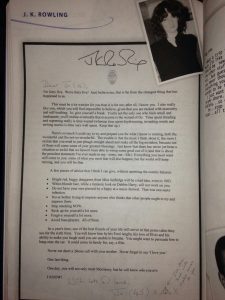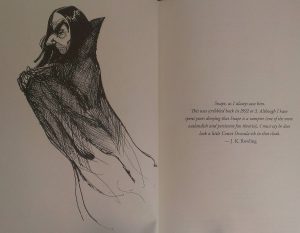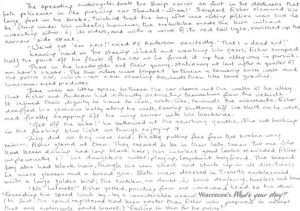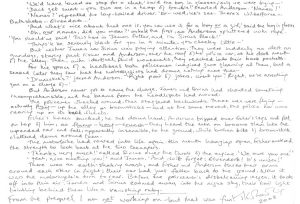“I’ve never voted Tory before, but…” Those much parodied posters, with their photogenic subjects and their trite captions, remind me irresistibly of glossy greetings cards. Indeed, the more I think about it, the more general elections have in common with the birthdays of middle life. Both entail a lot of largely unwelcome fuss; both offer unrivalled opportunities for congratulation and spite, and you have seen so many go by that a lot of the excitement has worn off.
Nevertheless, they become more meaningful, more serious. Behind all the bombast and balloons there is the melancholy awareness of more time gone, the tally of ambitions achieved and of opportunities missed.
So here we are again, taking stock of where we are, and of where we would like to be, both as individuals and as a country. Personally, I keep having flashbacks to 1997, and not merely because of the most memorable election result in recent times. In January that year, I was a single parent with a four-year-old daughter, teaching part-time but living mainly on benefits, in a rented flat. Eleven months later, I was a published author who had secured a lucrative publishing deal in the US, and bought my first ever property: a three-bedroom house with a garden.
I had become a single mother when my first marriage split up in 1993. In one devastating stroke, I became a hate figure to a certain section of the press, and a bogeyman to the Tory Government. Peter Lilley, then Secretary of State at the DSS, had recently entertained the Conservative Party conference with a spoof Gilbert and Sullivan number, in which he decried “young ladies who get pregnant just to jump the housing list”. The Secretary of State for Wales, John Redwood, castigated single-parent families from St Mellons, Cardiff, as “one of the biggest social problems of our day”. (John Redwood has since divorced the mother of his children.) Women like me (for it is a curious fact that lone male parents are generally portrayed as heroes, whereas women left holding the baby are vilified) were, according to popular myth, a prime cause of social breakdown, and in it for all we could get: free money, state-funded accommodation, an easy life.
An easy life. Between 1993 and 1997 I did the job of two parents, qualified and then worked as a secondary school teacher, wrote one and a half novels and did the planning for a further five. For a while, I was clinically depressed. To be told, over and over again, that I was feckless, lazy — even immoral — did not help.
The new Labour landslide marked a cessation in government hostilities towards families like mine. The change in tone was very welcome, but substance is, of course, more important than style. Labour had great ambitions for eradicating child poverty and while it succeeded, initially, in reversing the downward trend that had continued uninterrupted under Tory rule, it has not reached its own targets. There remains much more to be done.
This is not to say that there have not been real innovations to help lone-parent families. First, childcare tax credits were introduced by Gordon Brown when he was Chancellor, which were a meaningful way of addressing the fact that the single biggest obstacle for lone parents returning to work was not innate slothfulness but the near-impossibility of affording adequate childcare.
Then came Sure Start centres, of which there are now more than 3,000 across the UK: service centres where families with children under 5 can receive integrated service and information. Unless you have previously grappled with the separate agencies involved in housing, education and childcare, you might not be able to appreciate what a great innovation these centres are. They link to Jobcentres, offering help to secure employment, and give advice on parenting, childcare, education, specialist services and even health. A National Audit Office memorandum published last January found that the overall effectiveness of 98 per cent of the childcare offered was judged to be “good or outstanding”.
So here we are, in 2010, with what promises to be another memorable election in the offing. Gingerbread (now amalgamated with the National Council for One Parent Families), keen to forestall the mud-slinging of the early Nineties, recently urged Messrs Brown, Cameron and Clegg to sign up to a campaign called Let’s Lose the Labels, which aims to fight negative stereotyping of lone parents. Here are just a few of the facts that sometimes get lost on the way to an easy story, or a glib stump speech: only 13 per cent of single parents are under 25 years old, the average age being 36. Fifty-two per cent live below the breadline and 26 per cent in “non-decent” housing. Single-parent families are more likely than couple families to have a member with a disability, which gives some idea of the strains that cause family break up. In spite of all the obstacles, 56.3 per cent of lone parents are in paid employment.
As there are 1.9 million single-parent votes up for grabs, it ought not to surprise anyone that all three leaders of the main political parties agreed to sign up to Gingerbread’s campaign. For David Cameron, however, this surely involves a difficult straddling act.
Yesterday’s Conservative manifesto makes it clear that the Tories aim for less governmental support for the needy, and more input from the “third sector”: charity. It also reiterates the flagship policy so proudly defended by David Cameron last weekend, that of “sticking up for marriage”. To this end, they promise a half-a-billion pound tax break for lower-income married couples, working out at £150 per annum.
I accept that my friends and I might be atypical. Maybe you know people who would legally bind themselves to another human being, for life, for an extra £150 a year? Perhaps you were contemplating leaving a loveless or abusive marriage, but underwent a change of heart on hearing about a possible £150 tax break? Anything is possible; but somehow, I doubt it. Even Mr Cameron seems to admit that he is offering nothing more than a token gesture when he tells us “it’s not the money, it’s the message”.
Nobody who has ever experienced the reality of poverty could say “it’s not the money, it’s the message”. When your flat has been broken into, and you cannot afford a locksmith, it is the money. When you are two pence short of a tin of baked beans, and your child is hungry, it is the money. When you find yourself contemplating shoplifting to get nappies, it is the money. If Mr Cameron’s only practical advice to women living in poverty, the sole carers of their children, is “get married, and we’ll give you £150”, he reveals himself to be completely ignorant of their true situation.
How many prospective husbands did I ever meet, when I was the single mother of a baby, unable to work, stuck inside my flat, night after night, with barely enough money for life’s necessities? Should I have proposed to the youth who broke in through my kitchen window at 3am? Half a billion pounds, to send a message — would it not be more cost-effective, more personal, to send all the lower-income married people flowers?
Suggestions that Mr Cameron seems oblivious to how poor people actually live, think and behave seem to provoke accusations of class warfare. Let me therefore state, for the record, that I do not think it any more his fault that he spent his adolescence in the white tie and tails of Eton than that I spent the almost identical period in the ghastly brown-and-yellow stylings of Wyedean Comprehensive. I simply want to know that aspiring prime ministers have taken the trouble to educate themselves about the lives of all kinds of Britons, not only the sort that send messages with banknotes.
But wait, some will say. Given that you have long since left single parenthood for marriage and a nuclear family; given that you are now so far from a life dependent on benefits that Private Eye habitually refers to you as Rowlinginnit, why do you care? Surely, nowadays, you are a natural Tory voter?
No, I’m afraid not. The 2010 election campaign, more than any other, has underscored the continuing gulf between Tory values and my own. It is not only that the renewed marginalisation of the single, the divorced and the widowed brings back very bad memories. There has also been the revelation, after ten years of prevarication on the subject, that Lord Ashcroft, deputy chairman of the Conservatives, is non-domiciled for tax purposes.
Now, I never, ever, expected to find myself in a position where I could understand, from personal experience, the choices and temptations open to a man as rich as Lord Ashcroft. The fact remains that the first time I ever met my recently retired accountant, he put it to me point-blank: would I organise my money around my life, or my life around my money? If the latter, it was time to relocate to Ireland, Monaco, or possibly Belize.
I chose to remain a domiciled taxpayer for a couple of reasons. The main one was that I wanted my children to grow up where I grew up, to have proper roots in a culture as old and magnificent as Britain’s; to be citizens, with everything that implies, of a real country, not free-floating ex-pats, living in the limbo of some tax haven and associating only with the children of similarly greedy tax exiles.
A second reason, however, was that I am indebted to the British welfare state; the very one that Mr Cameron would like to replace with charity handouts. When my life hit rock bottom, that safety net, threadbare though it had become under John Major’s Government, was there to break the fall. I cannot help feeling, therefore, that it would have been contemptible to scarper for the West Indies at the first sniff of a seven-figure royalty cheque. This, if you like, is my notion of patriotism. On the available evidence, I suspect that it is Lord Ashcroft’s idea of being a mug.
Child poverty remains a shameful problem in this country, but it will never be solved by throwing millions of pounds of tax breaks at couples who have no children at all. David Cameron tells us that the Conservatives have changed, that they are no longer the “nasty party”, that he wants the UK to be “one of the most family-friendly nations in Europe”, but I, for one, am not buying it. He has repackaged a policy that made desperate lives worse when his party was last in power, and is trying to sell it as something new. I’ve never voted Tory before … and they keep on reminding me why.
Previous writing: « Contribution: A Letter to My Sixteen-Year-Old Self
Next writing: Hans Christian Andersen Award 2010 – Acceptance Speech »



